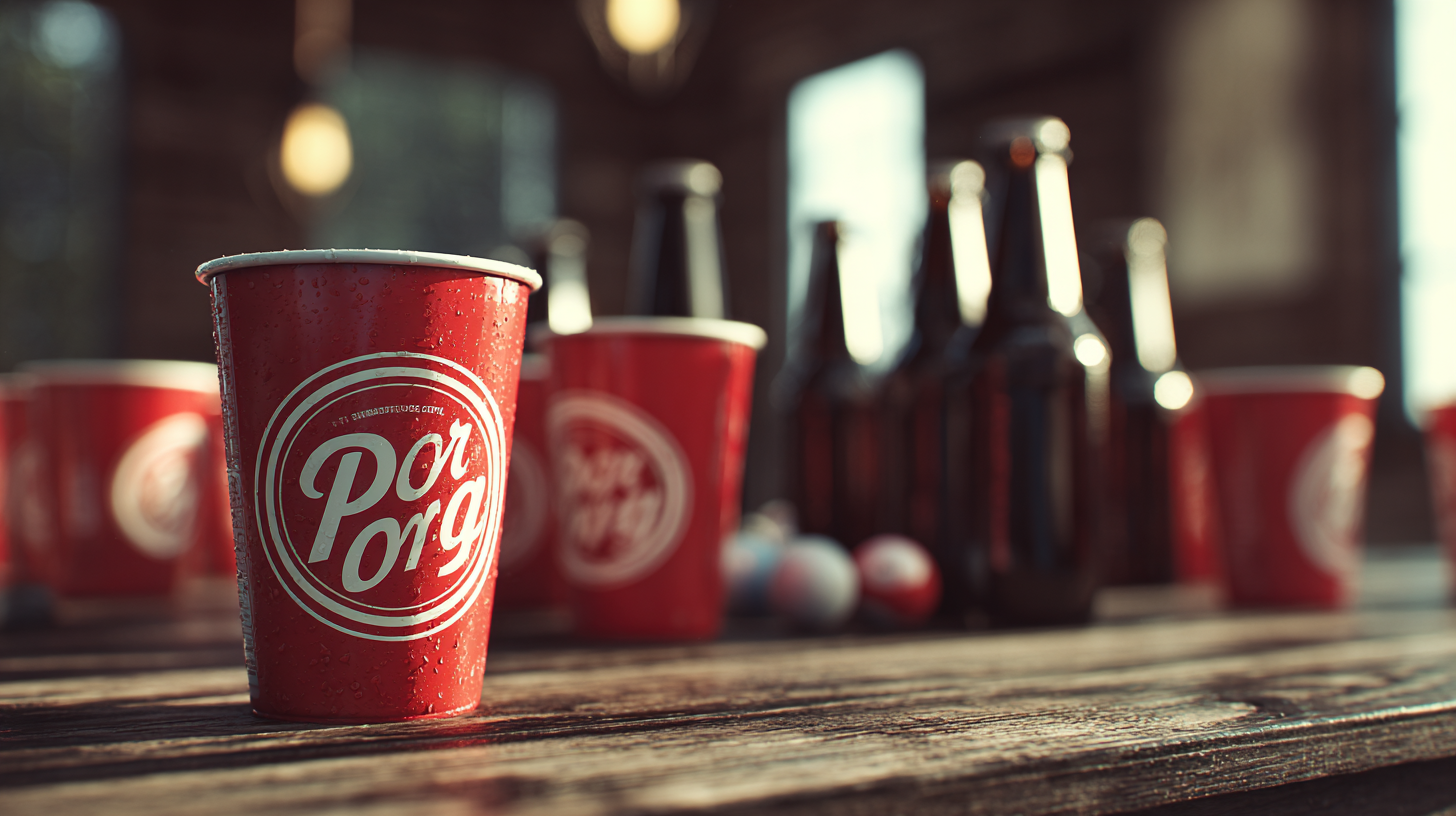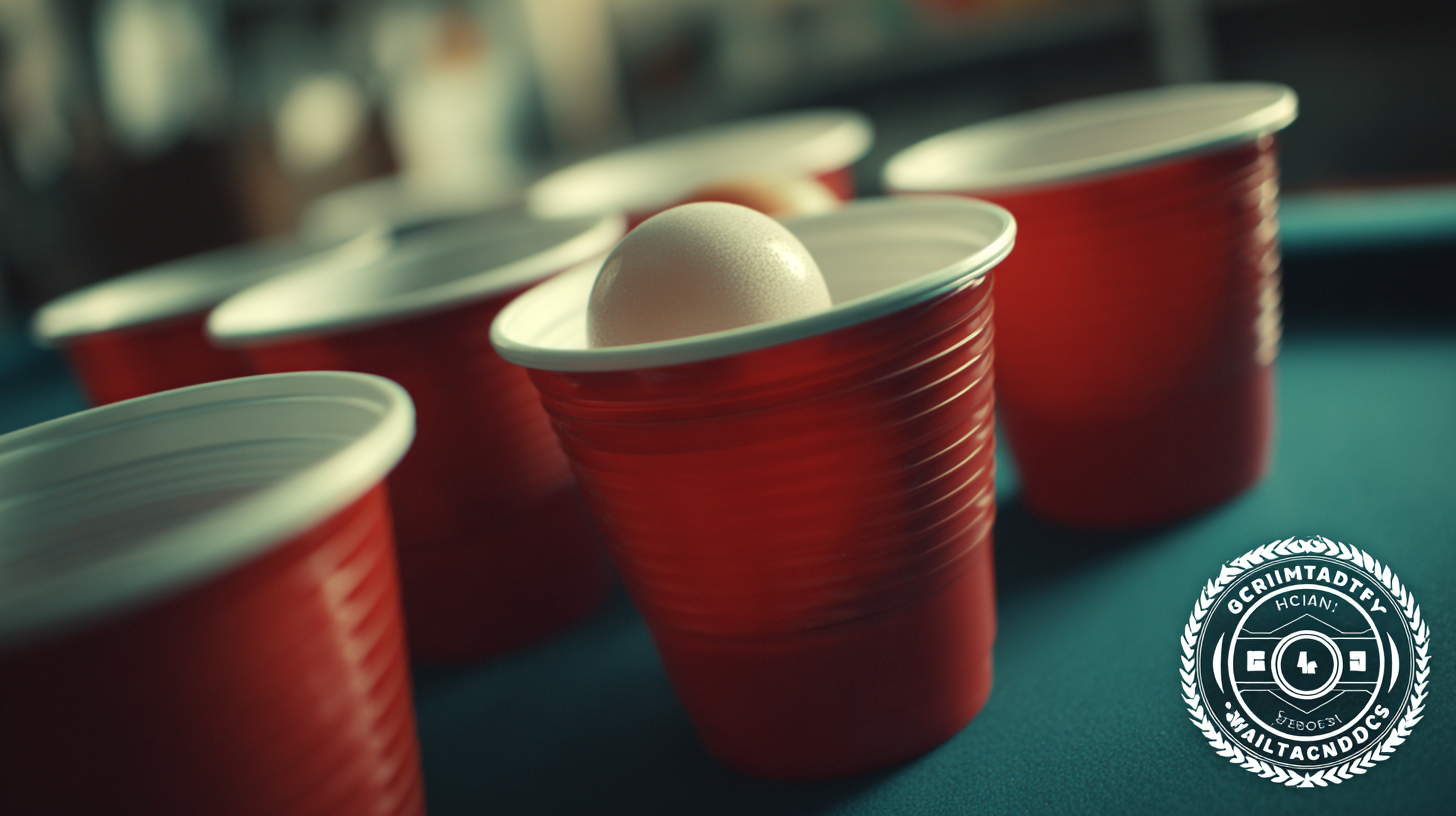In the rapidly evolving landscape of recreational games, the Beer Pong Game has emerged as a significant player, captivating audiences worldwide. A recent report from IBISWorld reveals that the global beer pong market is projected to reach USD 2 billion by 2025, underscoring the game's increasing popularity. As manufacturers pivot towards international markets, ensuring quality and compliance with best practices becomes paramount.
With standards set by organizations such as the International Organization for Standardization (ISO) and the American Society for Testing and Materials (ASTM), companies must adhere to rigorous manufacturing protocols to secure a competitive edge. This commitment to quality not only enhances product reliability but also fosters trust among consumers, ultimately driving market insights and business growth.

As we explore the journey from China to the global stage, it is essential to highlight how quality assurance can transform the Beer Pong Game industry, paving the way for sustainable success in a crowded marketplace.
When it comes to manufacturing the best beer pong games, adherence to industry standards is crucial for ensuring quality and compliance. According to a recent report by the National Compliance Association, over 70% of manufacturers who implement strict quality control measures see a significant reduction in product defects, fostering greater customer satisfaction. This highlights the importance of integrating standardized practices during the production process to maintain the integrity of the game.

Best practices in beer pong game manufacturing include using high-quality materials that are not only durable but also safe for consumer use. The American Society for Testing and Materials (ASTM) has developed specific guidelines that emphasize the importance of material safety and game functionality. For instance, their report states that using BPA-free plastics in cup production can reduce health risks and improve the product's appeal to health-conscious consumers. Additionally, regular audits and quality reviews can ensure that manufacturing processes align with these standards, ultimately leading to a superior product that satisfies the demands of players.
When it comes to manufacturing beer pong equipment, selecting the right materials is crucial not only for durability but also for ensuring safety during play. High-quality plastic is a common choice for cups, as it can withstand various impacts and spills while remaining lightweight. Additionally, using BPA-free materials ensures that players are not exposed to harmful chemicals. The surface of the cups should be smooth to facilitate easy stacking and cleaning, which helps maintain hygiene during use.
Beyond the cups, the durability and safety of the balls used in beer pong also warrant attention. Ideally, these balls should be made from sturdy materials like high-density foam or durable plastics that prevent cracking and maintain shape after repeated use. Manufacturers should also consider designing balls with a textured surface to enhance grip and control, providing players with a better overall experience. By prioritizing these key materials and components, manufacturers can produce beer pong equipment that not only enhances gameplay but also adheres to safety standards, making the game enjoyable and worry-free for all participants.
Ensuring quality and compliance in the manufacturing of beer pong games involves navigating a complex landscape of safety regulations and industry standards. The use of ASTM and ISO standards in production is crucial as these frameworks provide guidelines that help manufacturers maintain product safety and performance.
With the rise of automated compliance solutions, such as scripting tools designed to align 3D printing layouts with these standards, manufacturers can streamline their processes while ensuring adherence to stringent safety protocols.
In parallel, various industries, including medical devices and aerospace, are seeing a push towards robust quality assurance measures and specialized inspections. The development of specific certification programs helps to guarantee that manufacturers consistently produce high-quality components that meet regulatory demands. Utilizing these compliant manufacturing practices not only fosters consumer trust but also ensures that products, such as recreational items like beer pong games, are safe for use and manufactured to a high standard of quality. By prioritizing compliance with established safety regulations and advancing technology in production processes, manufacturers can significantly enhance their operational integrity and market competitiveness.
In the competitive realm of beer pong game manufacturing, implementing stringent quality control processes is crucial. Manufacturers must prioritize testing and inspection methods to ensure their products not only meet industry standards but also fulfill customer expectations. This includes a comprehensive review of materials used, such as the quality of the cups and balls, which should be durable and safe for repeated use. Rigorous material testing can detect any potential flaws early, thereby preventing defective products from reaching consumers.
Furthermore, regular inspections throughout the manufacturing process play a significant role in maintaining high standards. These inspections can involve checking for consistency in size and weight of the cups, ensuring that they comply with established beer pong regulations. Utilizing methods like random sampling and functional testing allows manufacturers to assess the reliability of their products under actual gameplay conditions. By adopting these meticulous testing and inspection strategies, beer pong game manufacturers not only guarantee quality and compliance but also enhance the overall user experience, fostering customer loyalty in a vibrant market.
In today's competitive market, eco-friendly manufacturing has become a pivotal trend in many industries, including the production of beer pong games. Manufacturers are increasingly aware of their environmental impact, prompting a shift towards sustainable practices. This includes utilizing recyclable materials for cups and balls, which not only reduces waste but also appeals to environmentally conscious consumers. By prioritizing green materials, companies can enhance their brand image while contributing to a healthier planet.
Tip: When selecting beer pong products, look for brands that emphasize sustainability in their materials and production processes. This not only ensures a better environment but often results in high-quality, durable products.
Another innovative trend is the implementation of energy-efficient techniques in the manufacturing process. By optimizing production lines and using renewable energy sources, manufacturers can significantly cut down on their carbon footprint. Smart technology can also play a role, helping companies track energy usage and waste throughout production, leading to continuous improvement and less environmental impact.
Tip: Support businesses that adopt renewable energy sources and energy-efficient technologies. This can drive the industry towards more sustainable practices and encourage others to follow suit.

